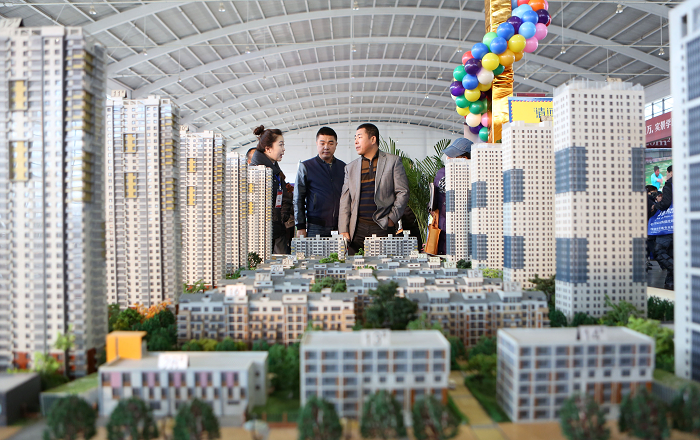One of the most painful economic problems of China – a prolonged subsidence in the real estate market – will be solved by mid-2023.
This forecast was made by several reputable consulting companies at once, commenting on the large-scale package of measures introduced by the authorities in November to support the construction sector.
Last month, the People’s Bank of China announced a 12-month delay in repayment of overdue loans for developers in a difficult situation. Through the largest state-owned banks, new loans were allocated for developers in the amount of more than a trillion yuan ($ 140 billion). The authorities confirmed the continuation of the policy to support consumer activity in the housing market by reducing mortgage interest rates and reducing the volume of initial contributions when buying apartments. The freedom of local governments to take additional measures to stimulate the real estate market has been confirmed. Local authorities are already actively using this freedom: from January to November, local governments introduced 925 measures to stimulate real estate sales. This is 75 percent more than last year, according to the consulting company Centaline Property.
According to observers, all these measures will have a positive effect by the middle of next year. It is from this moment that real estate sales in China will return to growth, the consulting company Zhuge Real Estate Data Research Center predicts. It is echoed by analysts from Great Wall Securities, who expect sales growth in May along with a slowdown in the fall in housing prices: by the end of 2023, on average in China, they will fall by no more than five percent. Experts from Guosheng Securities Co. Ltd. It is expected that in 2023, real estate sales in China will grow to 14.9 trillion yuan compared to the expected 13.5 trillion in the current year.
The main reason for the current turbulence, economists call the practice that has existed for many years of too rapid expansion of the development business due to the rapid increase in the volume of borrowing. As of mid-2020, the ratio of debts to assets of the largest developers reached 80 percent. It was at this moment that the state introduced a three-unit ceiling on lending to developers. By the decree of the authorities, the ratio of liabilities to assets of the developer should not exceed 70 percent of debts to capital – 100 percent, and the amount of cash should not be less than the size of short-term debt obligations.
Against the background of these restrictions, developers were unable to raise enough funds not just for development, but even for servicing existing debt obligations. This situation led to a sharp drop in the confidence of banks, which further stung lending to developers. To attract capital, developers began to drop prices in order to increase sales. However, this, in turn, led to a drop in the confidence of buyers who took a wait-and-see attitude.
The result turned out to be deplorable: since the fall of 2020, the volume of sales and real estate prices have gone into a peak, which continues to this day. According to the results of 10 months of this year, real estate sales in the country fell by 22.3 percent in physical terms and by 26.3 percent in monetary terms.
The problems of the real estate sector are hurting the Chinese economy as a whole, because the construction sector, together with related industries (production of construction and finishing materials, furniture, etc.) provides up to 30 percent of national GDP. In related sectors, the drop in profits is sometimes higher than in the construction sector. So, for three quarters, the profit of manufacturers of building materials in China fell by 32 percent.
